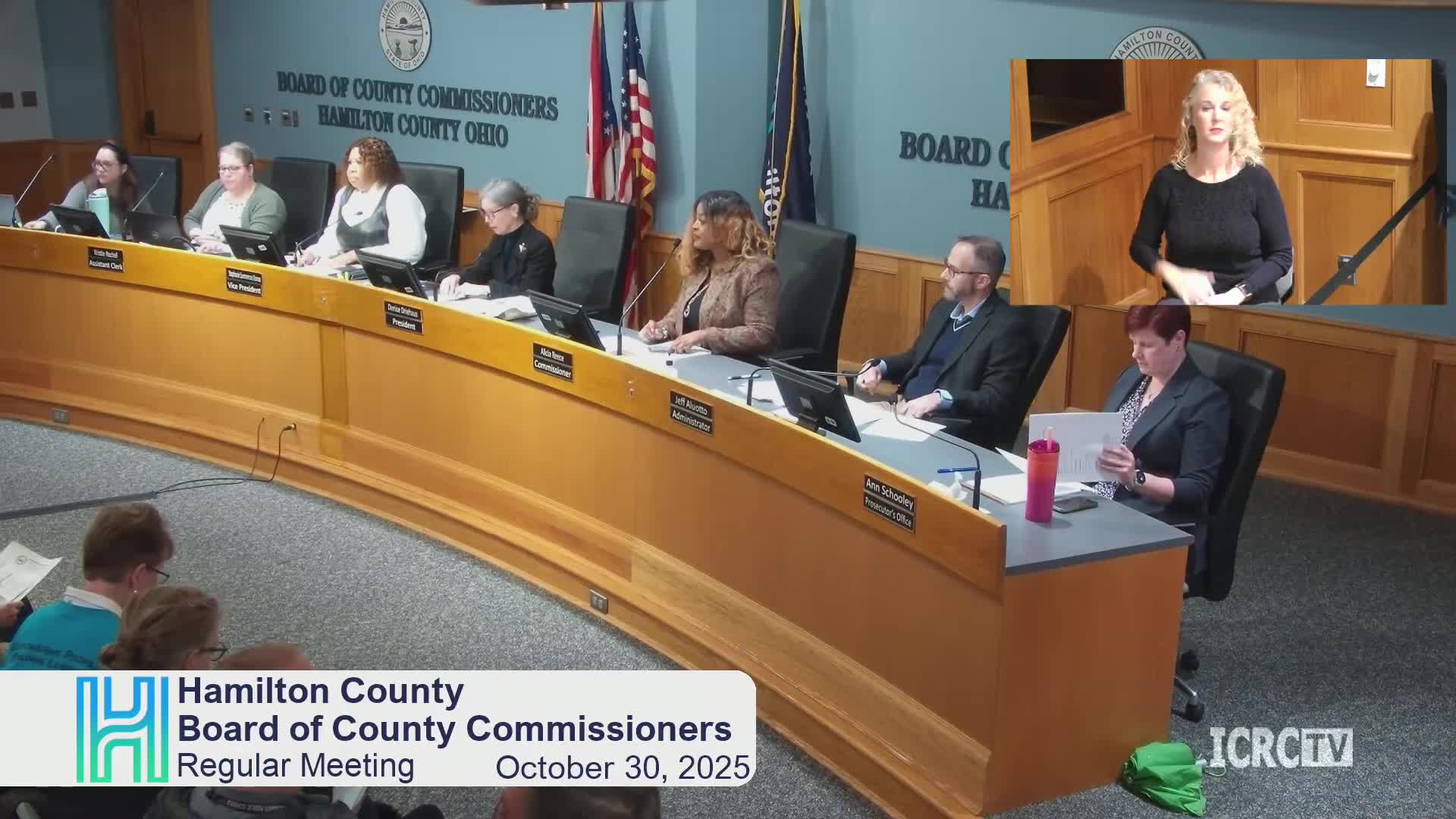School leaders and county residents urge commissioners to reject proposed homestead/owner-occupied credit expansion
Get AI-powered insights, summaries, and transcripts
Subscribe
Summary
Hundreds of residents and education officials pressed the Hamilton County Board of County Commissioners on Oct. 30 to oppose a proposed local expansion of homestead and owner-occupied property tax credits that several speakers said would sharply cut school revenue.
Hundreds of residents and education officials pressed the Hamilton County Board of County Commissioners on Oct. 30 to oppose a proposed local expansion of homestead and owner-occupied property tax credits that several speakers said would sharply cut school revenue.
School officials described specific budget impacts and staffing consequences if the county adopts the piggyback measure. "I'm here before you today to provide testimony and strong opposition of this property tax relief measure under consideration," said Jason Simmons, an elected member of the Forest Hills School Board. Simmons said Forest Hills would lose about $1,700,000 under the proposal and that a cut of that size "means cutting 15 to 20 teachers."
Norwood Board of Education President Brandon Atwood said the county proposal would reduce Norwood revenue by roughly $400,000 and, he testified, would eliminate more than $23,000,000 in revenue for public education across Hamilton County. Daniel Hoing, general counsel for Cincinnati Public Schools, told the board that CPS "would lose $7,500,000" and that the loss was not something the district had time to plan for. Michael Guston, CPS chief financial officer, said the $7.5 million figure "equals 66 teacher salaries and benefits."
State Senator Bill Seitz, who co-chaired a governor's working group on property tax reform, urged caution about a local fix. "It is easy to give away other people's money, but it's not fair and it's not right," Seitz said, citing a working-group report and pending state bills that he said offer a longer-term solution (including a proposal to cap inside millage increases tied to inflation). Several speakers — superintendents and treasurers from Forest Hills, Sycamore, Reading, Southwest and other districts — echoed that the underlying problem is state-level funding and valuation rules and urged the county to press legislators in Columbus for systemic reform rather than shifting revenue away from voter-approved local levies.
Commissioners acknowledged the hardship residents face over higher tax bills and said they are sensitive to the issue. President Denise Driehaus and other members referenced the governor's task force and state bills under consideration, saying a state-led fix (for example, capping valuation-driven windfalls) is preferable to a county-level change that would reduce school funding. Driehaus noted the county working group had proposed multiple alternatives, including tax deferral and targeted relief for delinquent homeowners, and said the county should not "pass the buck" to local school districts.
No ordinance expanding the homestead or owner-occupied credits was advanced at the meeting. Commissioners noted there was a deadline for county action "by tomorrow," but they repeatedly said state-level solutions and more consultation with affected districts were the right path; the board instead accepted written communications for the record and continued the discussion.
Speakers representing districts provided the board with district-level estimates and appeals to honor voter-approved levies. Jenny Logan, treasurer for Sycamore Community Schools, told the commissioners Sycamore would lose about $1,200,000 and that the district receives about 85% of its revenue from the local tax base. Forest Hills Superintendent Larry Hook said Forest Hills relies on local support because the state covers only a small share of the district budget and that the proposed credits would undo voter-approved levies the community had passed to restore fiscal stability.
Commissioners said they would continue to work with state legislators and other jurisdictions, and they encouraged districts and residents to press the state for comprehensive reform. County staff entered roughly 25 written communications into the public record from parks, libraries and other jurisdictions opposing or asking for further study of the local credit expansion.
The public comments and the board's discussion highlighted a central tension: commissioners said they are sympathetic to taxpayers facing large assessment-driven increases, while school leaders warned that county-level relief without state reimbursement would force cuts to teachers, student supports and other services.
The matter remains under active consideration; commissioners did not adopt the piggyback credits at the Oct. 30 session and said further work with the legislature and additional outreach to affected districts would continue.
